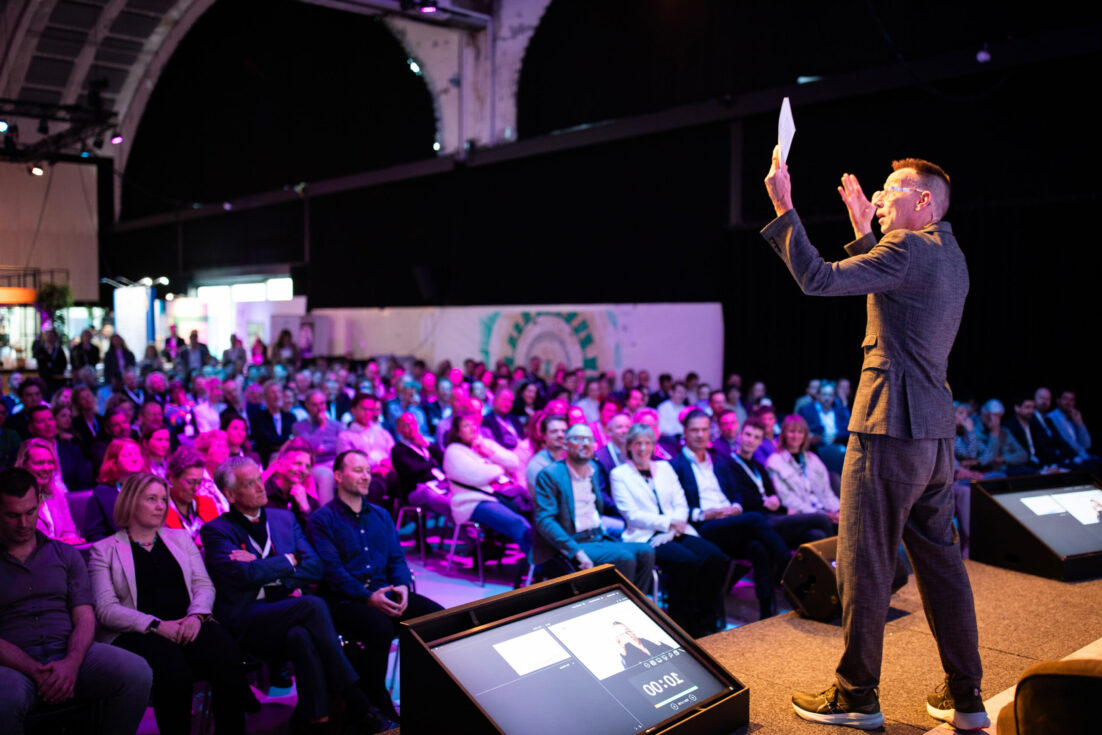
On March 13, 2025, the annual Health Valley Event brought together healthcare professionals, innovators, and technology experts to explore the future of healthcare and discuss the digital transition.
On March 13, 2025, the annual Health Valley Event brought together healthcare professionals, innovators, and technology experts to explore the future of healthcare and discuss the digital transition. Through various sessions and workshops, it became clear that technology is not only a catalyst for change but also the key to a future where healthcare is more efficient, accessible, and human-centered.
Hakan Polat, President of Elevate, led a session on Digital Transformation in Healthcare and the Role of Technology as a Catalyst for Change. In a follow-up interview, he offers insights into the key themes of his talk, along with the driving motivations behind the topic.
Hakan: I’m seeing a shift in the healthcare sector, driven by major challenges: an aging population, rising demand for care, and a growing shortage of healthcare professionals. The digital transition presents a promising path forward to tackle these issues.
Hakan: Digital transformation is about organising healthcare in a smarter, more efficient, and patient-centered way. Technology helps healthcare professionals diagnose patients faster and more accurately, empowers patients to take control of their own health, and reduces administrative burdens. Additionally, digitalisation enhances collaboration among healthcare professionals, improving both the continuity and quality of care.
Some of the key technological trends I discussed included:
Additionally, I emphasised the challenges of digital transformation, such as digital skills, privacy concerns, and change management, and encouraged participants to think about how to integrate these innovations effectively.
Hakan: The session was well received, highlighting the relevance and urgency of digitalisation in healthcare. Around 200 participants engaged in meaningful discussions about the technologies they plan to adopt and how to effectively integrate them into their daily practice.
Many asked insightful questions about how technology can support their day-to-day tasks, ultimately enabling them to deliver better care.
Hakan: Some participants acknowledged the challenges they face within the healthcare system—particularly the burden of paperwork and limited time for patient care. The idea that technology could ease administrative tasks and streamline routines sparked their interest in exploring how it might better support their work.
Hakan: While my session focused on technological advancements, I was inspired by other discussions about patient empowerment and digital ethics.
Hakan: A key insight from the event was that digital transformation in healthcare goes beyond merely adopting new technologies; it also requires a significant cultural shift. For technology to genuinely enhance patient care, healthcare professionals must receive adequate support, training, and digital literacy. Without this foundational knowledge, digital tools risk becoming burdensome rather than beneficial. As we advance further into the digital age, it’s essential that we remain focused on the human aspect of care, ensuring that every innovation ultimately serves people, not just processes.
“The future of healthcare is digital, but remains human. How can we ensure together that technology is not only efficient but also makes healthcare more humane?
– Hakan Polat, President (Elevate)